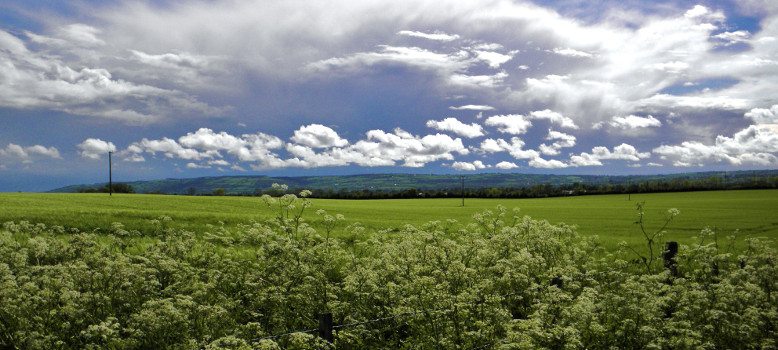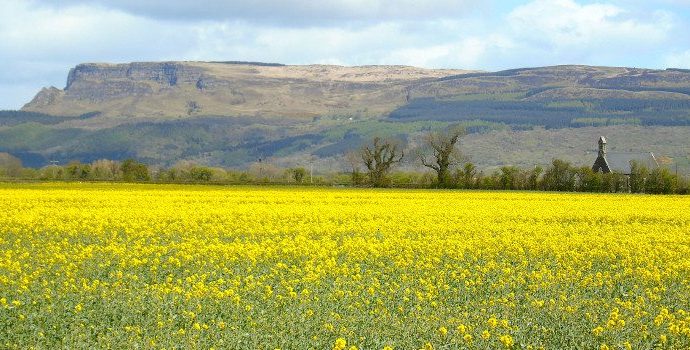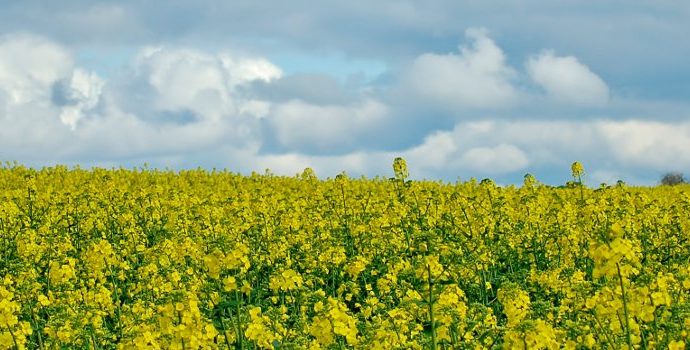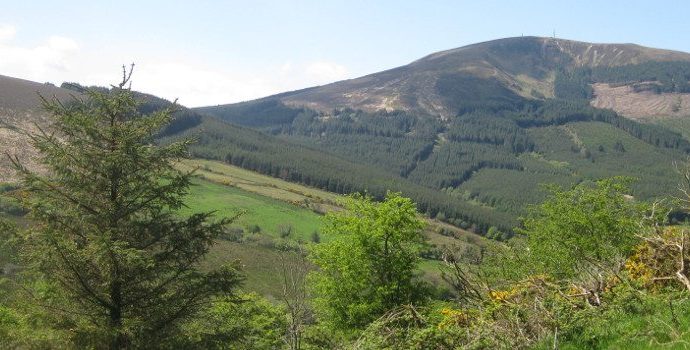Environment Reports
Environment Council Report July 2023

- Activity since last National Council
- The negotiations and lobbying on the EU Nature Restoration Law (NRL) have been proceeding at pace at national and European level:
- IFA held a national information meeting on the proposed NRL on 10th May in the Tullamore Court Hotel. Malcom Noonan, Minister for State for Heritage, addressed the meeting online and representatives from both the Department of Housing, Local Government and Heritage and Department Agriculture, Food and the Marine spoke at the meeting. A presentation from the National Parks & Wildlife Service is available on the IFA website.
- IFA attended a series of County Executives to outline the potential impact of the NRL on farm land.
- IFA is Chair of the COPA Biodiversity Taskforce, which met regularly to coordinate the response between farm organisations at European level.
- The European Parliament’s committee on Fisheries (PECH), Agriculture and Environment voted to reject the proposed NRL.
- An IFA delegation met with MEPs ahead of the Environment Committee vote on the 15th June in Strasbourg, France.
- IFA delegation attended the European Parliament plenary vote in Strasbourg, France on 12th July where a weakened NRL was adopted. The version includes the complete deletion of Article 9 on restoration of agricultural systems which contained the rewetting targets. A copy of the amended Parliament agreed text is available here.
- This is not the final position, the next stage of negotiations is called the trilogues (negotiations between the Commission, Council and Parliament) to agree final text on the NRL.
- As part of IFA’s ongoing campaign to maintain of Ireland’s Nitrates Derogation:
- IFA made a submission to DG Environment in early June outlining concerns with regards the validity of the two-year review to determine water quality trends attached to the European Commission’s Implementing Decision granting Ireland a derogation (enclosed).
- The criteria outlined by the Commission required the two-year review to include monitoring results of nitrates concentrations of groundwater and surface waters and the trophic status (biological quality) of surface water bodies, showing areas draining into waters where monitoring data reveal:
- average values of nitrate concentrations above 50 mg/l or increasing trends of nitrates concentration compared to 2021.
- ‘Eutrophic’ status or ‘could become eutrophic’ status with a stable or worsening trend compared to 2021.
- The EPA published and submitted a report to the European Commission on the 30th June as part of the water quality review on the Nitrogen and Phosphorous Concentrations in Irish waters 2022. Annex 1 of this report provides a water quality assessment, based on the criteria prescribed by the European Commission, and identifies waterbodies that are polluted, at risk of pollution or showing worsening trends as a result of agricultural activities. Additional measures are required in the areas draining to those waterbodies to help improve water quality.
- The map below shows over 44,000 km2 which were identified as requiring additional measures as part of the conditions of Ireland’s derogation.
- EPA published Ireland’s Air Pollutant Emissions 2021 (1990-2030) report on 24th May. It shows that Ireland continues to be in breach of Ammonia emission reduction commitment under National Emissions Ceiling Directive (2016). Agriculture accounts for more than 99% of ammonia emissions in Ireland.
- Ammonia emissions increased by 1% in 2021, this was attributed to a growth in livestock numbers. The increased use of low emission slurry spreading (LESS) to 48% was not sufficient to counteract growth in livestock numbers.

- EPA published Ireland’s GHG Emissions Projections 2022-2040 on 1st June.
- Total emissions from agriculture (including fuel used in agriculture, forestry and fishing) are projected to decrease by 4% over the period 2021-2030 (from 23.6 to 22.8 Mt CO2 eq) under the With Existing Measures (WEM) scenario.
- Under the With Additional Measures (WAM) scenario emissions are projected to decrease by 20% over the period 2021-2030 (from 23.6 to 19 Mt CO2 eq). The WAM scenario assumes the WEM measures plus the measures outlined in AgClimatise, Climate Action Plan 2023, and the Teagasc MACC are in place
- EPA published Water quality in 2022 An Indicators Report on 13th June.
- There has been a small increase in the number of river water bodies that are in high or good biological quality (56%). The report showed a net improvement in biological quality in seven river water bodies when compared to the previous survey.
- There has also been a small net improvement of biological quality of six river water bodies in the Prioritised Areas for Action (PAAs), showing again that programmes like Agricultural Sustainability Support and Advisory Programme (ASSAP) that support farmers to take targeted actions can deliver higher improvements in water quality.
- The number of rivers with unsatisfactory nitrates concentrations has improved down from 47% in the previous report to 40%.
- EPA published Ireland’s Provisional GHG Emissions 1990 to 2022 on 13th July.


- IFA made a submission to the public consultation on Ireland’s current Long-term Strategy on Greenhouse Gas Emissions Reductions on 30th June (enclosed), in the submission IFA proposed:
- Address the technical challenges associated with monitoring, reporting, and verifying emissions reductions in Agriculture and LULUCF.
- Respect the property rights of farmers and allow them to make decisions regarding the current and future use of their land.
- Consider the differences between carbon dioxide (CO2) and methane (CH4) and account for the non-cumulative effect of biogenic methane, and its short-lived nature.
- Consider additional support beyond the Common Agricultural Policy (CAP).
- IFA made a submission to the EIA (Agriculture) Regulation review on 10th July (enclosed), in the submission IFA proposed that:
- Meaningful engagement with farmers must be prioritised as those directly affected by the regulations.
- The current EIA (Agriculture) regulations are sufficiently robust and well-designed to protect the environment from significant impact by the farming activities controlled under it.
- The current thresholds should be maintained for screening applications under the EIA (Agriculture) Regulations to ensure that only activities with the potential to cause significant environmental impacts undergo screening or the EIA process.
- IFA made a submission to the DAFM Climate KIC Overview of Flagship Projects on the 15th June (see enclosed).
- IFA participated on panel discussion at the National Economic and Social Council (NESC) event Exploring a Just Transition in Agriculture and Land Use on the 30th June in the Convention Centre, Dublin.
- A report on Just Transition in Agriculture and Land Use was published on the 11th July. The report argues that tackling the environmental challenge must be addressed together with the intersecting economic and social challenges and sets out twenty key recommendations for climate transition in agriculture.
- Teagasc launched the Teagasc Marginal Abatement Cost Curve 2023 on 12th July which provides a pathway for Irish agricultural to meet its GHG targets by 2030.
- Three agricultural activity scenarios were modelled to predict animal numbers in 2030. The scenarios include a most likely case (S1), a lower projection (S2), and a higher projection (S3). Each scenario also considered two adoption rates for mitigation measures: Pathway 1 (P1) assumed a similar adoption rate to the previous MACC, while Pathway 2 (P2) assumed a higher adoption rate representing the maximum technically feasible.
- New measures have been added, including age at finishing, feed additives and diversification The contribution of some existing measures have been adjusted based on new science (particularly dairy EBI).
- The National Hydrogen Strategy was published on the 12th July and sets out the strategic vision on the role that hydrogen will play in Ireland’s energy system.
- IFA made presentations to Leitrim, Donegal, Carlow, Clare and Sligo County Executive meetings.
- IFA met with Senior Executives from Cork and Waterford County Councils in May to highlight the serious concerns of farmers over the proposed Dungarvan to Mallow Greenway project.
- IFA attended stakeholder meetings and forums including:
- A National Pesticides and Drinking Water Action Group (NPDWAG) meeting on 25th May.
- Natural Products Workshop in Trinity College Dublin on 17th May.
- A launch of 2050 Accelerator & Ecosystem, Ireland’s National Sustainability, and Innovation Platform on 17th May.
- The EPA National Climate Change Conference 2023 on 25th May.
- The 4th Consultative Group meeting – DAFM Climate KIC partnership.
- NESC Roundtable discussions on Agro-Ecological Accounting in Agriculture, Forestry and Other Land Use on 23rd May.
- NESC Event on Exploring Just Transition in Agriculture and Land Use 30th of June.
- The National Climate Stakeholder Forum 2023 on 10th f May.
- The EU Just Transition Funding 2nd Monitoring Committee meeting on 31st May.
- An online briefing on 14th July on the EPA Ireland’s Provisional greenhouse gas emissions for 2022.
- IFA issued a number of press releases on:
- Progress on emissions should be acknowledged.
- The future of rural Ireland and food security cannot be put in jeopardy by any proposed EU nature restoration law.
- The expansion of solar needs government to remove barriers to entry.
- Latest vote on Nature Restoration Law raises significant questions about commission approach.
- EPA nitrates map highlights flawed approach to water quality.
- Focus of Nature Restoration Law debate now moves to trilogues.
- The IFA Environment and Rural Affairs Committee met on Wednesday 31st of May in the Farm Centre.
- Any EU/COPA developments
- IFA attended a COPA Working Party on Environment on 3rd July.
- The European Parliament plenary vote on the Industrial Emissions Directive (IED) was held on the 11th July.
- They voted to maintain the status quo, which excludes livestock from the scope of the IED as well as the existing thresholds for pig and poultry farms.
- On the 5th July the Commission adopts proposal for a Soil Monitoring Law, the proposed law provides a legal framework to help achieve healthy soils by 2050. It will do so by:
- putting in place a monitoring framework for all soils across the EU so Member States can take measures to regenerate degraded soils
- making sustainable soil management the norm in the EU. Member States will have to define which practices should be implemented by soil managers and which should be banned because they cause soil degradation
- requesting Member States to identify potentially contaminated sites, investigate these sites and address unacceptable risks for human health and the environment, thereby contributing to a toxic-free environment by 2050.
- Upcoming issues
- IFA will attend and participate in sessions at the Energy and Farm Business Show on Thursday, 20th July 2023.
- IFA will present to the Joint Oireachtas Committee on Agriculture Food and he Marine on Wednesday 19th July on the Nitrates derogation.




